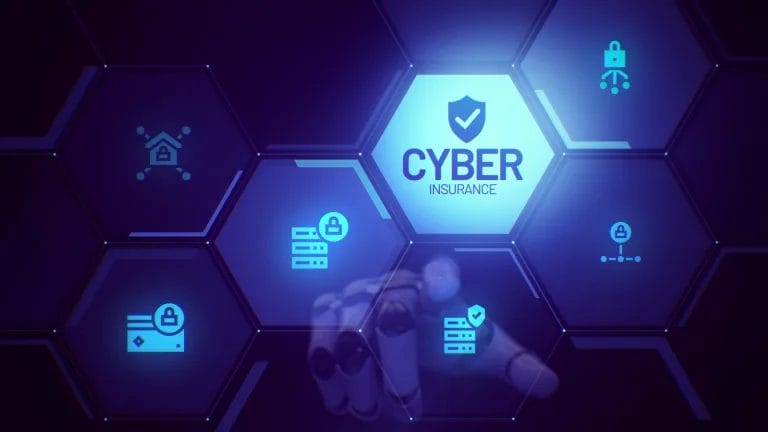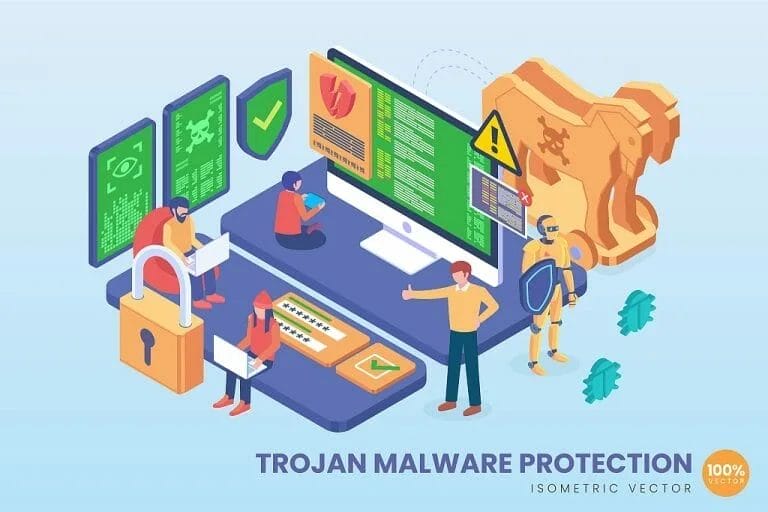
As a small or medium-sized business owner, you might not think that cyber security is something you need to worry about. After all, you’re not a big corporation with millions of dollars to lose. But the truth is, cyber security is just as important for SMEs as it is for any other business. In fact, according to a 2021 report from CyberEdge Group, cyber attacks have become more common for small and medium-sized businesses, with 86% of organizations being vulnerable to successful cyber attacks, an increase of 24% over the previous seven years.
There are plenty of cyber security risks out there that can threaten your business, from data breaches to malware attacks. And if you’re not prepared, these cyber threats can do serious damage to your business, both financially and reputationally. That’s why it’s so important to have a good cyber security plan in place.
Why Cyber Security Is Important For SME
Cybersecurity is an important issue for small business owners and and medium-sized enterprises, as the costs of a data breach can be significant. Cybersecurity threats or theft can result in lost revenue, decreased customer loyalty, and even legal action. Additionally, a data breach can have devastating consequences for the reputation of a company.
Small businesses are especially vulnerable to cybercrime, as they often lack the resources to protect themselves from such attacks. In addition, small businesses may not have enough understanding or experience with cybersecurity strategy to know how to respond when they are attacked by cybercriminals or hacker.
Fortunately, there are many ways that SMEs can protect themselves from cyber threats. For example, small businesses can invest in cybersecurity measures such as firewalls and intrusion detection systems (IDS) or simply do regular system backup. They can also train employees best practices on how to identify and mitigate cyber threats. Finally, small businesses or medium-sized enterprises should keep up-to-date on the latest news and trends related to cybersecurity so that they are aware of any vulnerabilities that may exist.
The Top Cyber Security Threats Facing SME
Small to medium size businesses (SMEs) are particularly vulnerable to cyber security threats. Phishing scams, ransomware, and social engineering attacks are all on the rise and target these businesses specifically. It is important for SME owners to have a cyber security strategy in place that addresses each of these security gaps in a specific way.
Phishing scams are perhaps the most common form of cyber attack against SME owners. These scams involve fake emails that look like they come from legitimate sources such as banks or companies. Once an owner clicks on one of these links and go to internet, their computer is infected with malware which can steal personal information or financial data.
Ransomware is also a major threat to SMEs. This type of attack locks down an office or computer system and demands payment in order for the victim to have access again. In some cases, ransom payments have been used to finance other types of crimes such as terrorism or hacktivism.
Social engineering attacks are becoming more sophisticated and often use features of online platforms such as social media or email marketing to trick victims into giving away sensitive information. As technology continues to evolve, so too do the methods used by attackers to exploit vulnerabilities in systems and steal data.
It is essential for SME owners to have a strong cyber security strategy in place that addresses all three types of threats: physical, digital, and social/digital attacks. By doing this, they can reduce security vulnerabilities and protect their business from potential damage and ensure that their customers remain safe too.
The Cost Of Not Having Cyber Security For SME
Cybersecurity is essential for any business, regardless of size. A data breach can have serious consequences for your company, including fines, lost trust from customers, and even potential lawsuits. The cost of not having cybersecurity can be significant and irreversible.
The good news is that there are steps you can take to protect yourself against cyberattacks. For example, you should have a data breach plan in place and make sure all employees are aware of the risks and how to respond if a breach does occur. Additionally, you should always keep up-to-date on the latest security threats and implement appropriate measures to protect your data. Finally, don’t let yourself get caught without adequate insurance coverage in case of a cyberattack.
Statistically speaking, businesses with inadequate cybersecurity protections are four times more likely to experience a data breach than those who take proactive measures. In fact, some experts believe that not having adequate cybersecurity could lead to bankruptcy for small businesses within the next five years! Needless to say, the costs associated with a data breach can be catastrophic for any business – no matter how large or small. Make sure you take the necessary precautions to protect your company before it’s too late!

Steps To Secure Your SME From Cyber Attacks
Cyberattacks are a serious problem for small businesses and medium-sized companies. In fact, a report by barracuda.com report, small businesses are three times more likely to be targeted by cybercriminals than larger companies.
Fortunately, there are steps that you can take to secure your SME from these attacks. Here are four of the most important:
1. Identify your assets and data. Make sure you know what is valuable to attackers and keep this information safe. This includes things like customer information, financial data, and intellectual property (IP) and backup regularly.
2. Know who has access to your systems including company wi-fi network. Make sure no unauthorized access to your apps, servers, router, systems and databases. Password-protect your wi-fi network and also protect user accounts with strong passwords and encryption techniques.
3. Separate your networks. Keep your internal network separate from any public or external networks where sensitive data may be accessed by unauthorized individuals via personal mobile devices or laptops.
4. Implement security protocols. Install firewalls, intrusion detection/prevention systems (IDS/IPS), antivirus software and other security like multi-factor authentication measures to protect against cyber attacks.
Myths About Cyber Security You Need To Stop Believing
When it comes to cyber security, there are a few myths that many people believe. Some of these myths include the idea that cyber security is only for big businesses, or that you need to be a tech expert in order to implement effective measures. In reality, cyber security is not just for large corporations – any business can benefit from implementing basic cybersecurity measures.
Another myth is that cybersecurity is expensive. Whilst this may be true for some types of cyber threats, it’s often not the case when it comes to more common threats. In fact, cybersecurity measures can often be implemented relatively cheaply if they’re carried out correctly. Just focus to protect your business data which comprises of sensitive information and critical data and do regular backup on them.
Finally, many people believe that there is nothing they can do about their online privacy and security. This couldn’t be further from the truth! There are simple steps that anyone can take to improve their online security and privacy – even if they don’t have technical expertise. For example, using strong passwords and enabling two-factor authentication are both simple but important steps you can take to protect your data and identity online.
To Summarize
Cyber security is an important issue for all businesses, but especially small to medium size businesses (SMEs). There are many cyber security risks out there that can threaten your business, from data breaches to malware attacks. And if you’re not prepared, these threats can do serious damage to your business, both financially and reputationally.
That’s why it’s so important to have a good cyber security plan in place.





